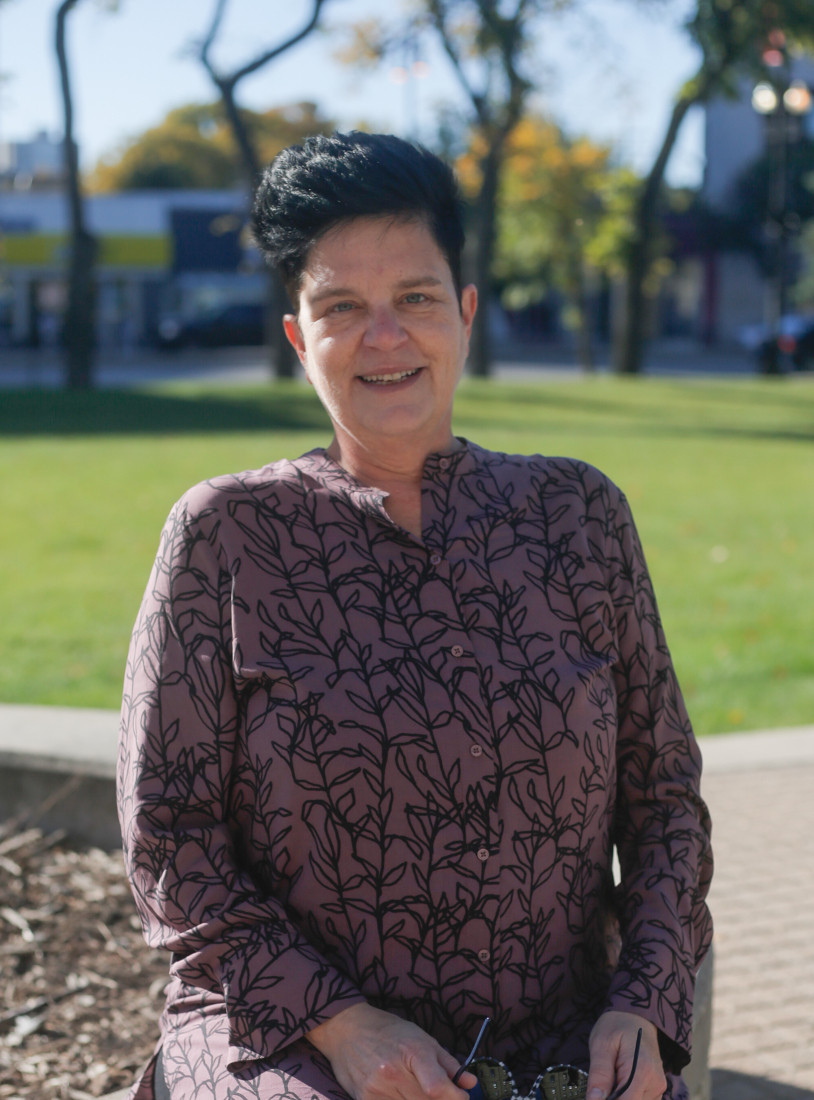Planning more equitable cities
Meet the new IUS director, Dr. Gina Sylvestre

Dr. Gina Sylvestre is the new director of the University of Winnipeg’s Institute of Urban Studies. (Photo by Callie Lugosi)
The University of Winnipeg, which is home to the Institute of Urban Studies (IUS), has recently welcomed a new director: Dr. Gina Slyvestre, an environmental gerontologist. Sylverstre is an accomplished academic and earned her bachelor of arts, master’s degree and doctorate from the University of Manitoba.
Sylvestre’s research has primarily centred around the aging population, focusing “on where older people live and how that impacts their quality of life.” Sylvestre says she is “very interested in the human experiences and urban landscapes, in particular about social inequality and how we can address that.”
The COVID-19 pandemic has brought many of Sylvestre’s research interests into the public spotlight and started conversations about the different inequities that exist throughout communities, specifically in urban city centres.
Sylvestre says the pandemic “has really highlighted, in some ways, some good things about community, and also where that inequality in our system exists.”
On many consultation projects, the IUS has worked alongside the City of Winnipeg and different organizations to promote access to housing for those who are a part of marginalized demographics. One example is the Indigenizing Housing First guide that was produced by the IUS in consultation with local homelessness- serving organizations in 2019.
“Housing First is a best-practices model of assisting people experiencing homelessness that focuses on moving people quickly into housing before providing needed health, mental-health and social services,” Scott McCullough, senior research associate for the IUS, says.
“Our guide expanded the knowledge we had gained from the At Home/Chez Soi research demonstration project in Winnipeg, through interviews and focus groups with Indigenous homeless-serving organizations from across Canada and elsewhere,” he says.
Sylvestre says the IUS can be a valuable resource during city planning moving forward, “in discussing how these issues that are being looked at – the health of communities and so on – (and) how they can be looked at from an urban-planning perspective.”
She continues to explore some major questions the City of Winnipeg should ask regarding equity and sustainability in city planning.
“The housing crisis is serious across Canada but has disproportionately impacted vulnerable, marginalized and racialized groups,” McCullough says.
“There is a lack of affordable housing nationwide. Many, many people are in core-housing need (paying more than 30 per cent of their income on housing). Most of those in core need are renters, and some of these are students. We see increased vulnerability to evictions, especially as older-affordable housing stock is redeveloped.”
McCollough says there are many ambitious projects on the horizon, including one focused on “rental discrimination with a focus on seniors, LGBTQ+ and racialized tenants.”
Published in Volume 76, Number 3 of The Uniter (September 23, 2021)






